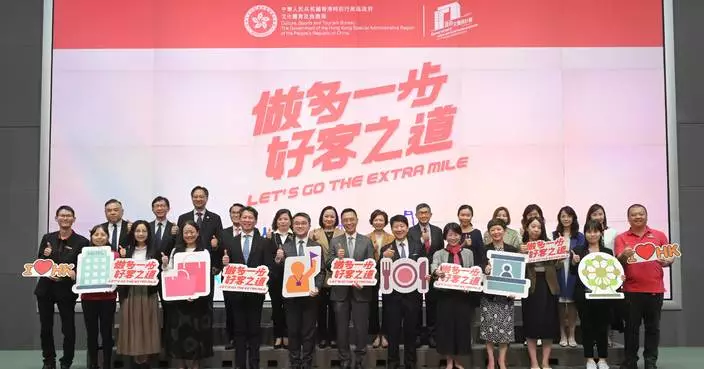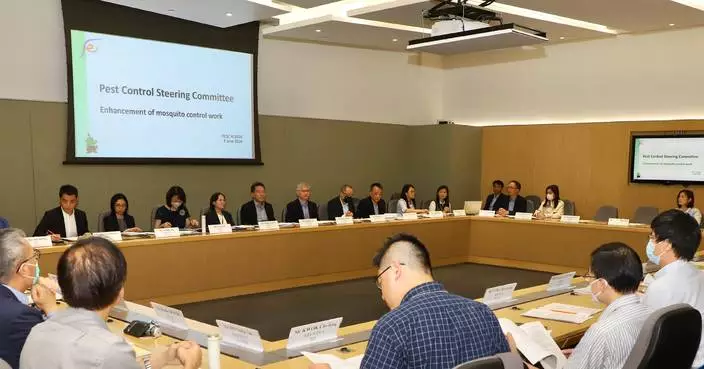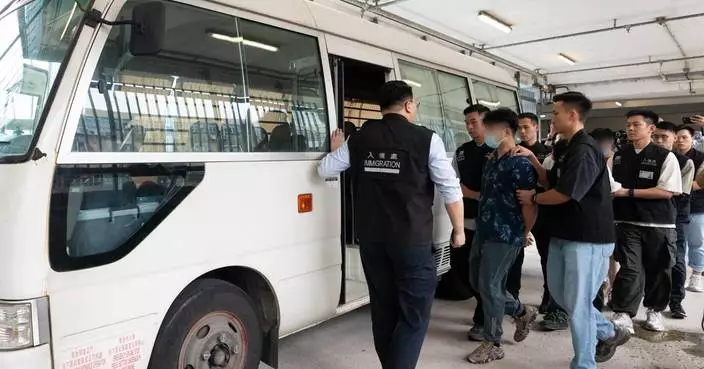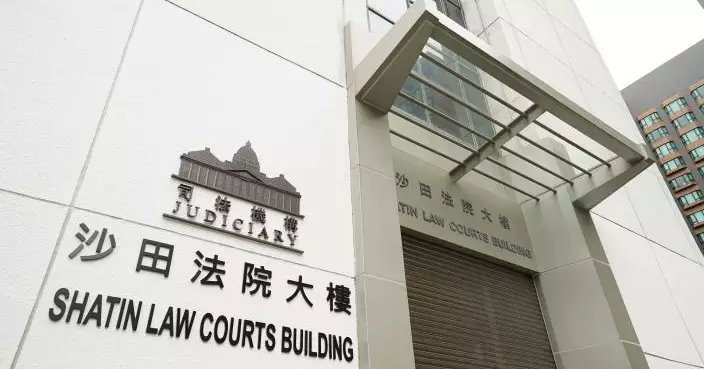Chp investigating confirmed case of mpox: what you need to know
The Centre for Health Protection (CHP) of the Department of Health (DH) said today (May 21) that it is investigating a confirmed Mpox (also known as Monkeypox) case, and urged the public to heighten vigilance and avoid close physical contact with persons suspected of contracting Mpox. Meanwhile, high-risk target groups are advised to receive Mpox vaccination.
The case involves a 31-year-old male patient with underlying diseases. He had developed a skin rash on May 14 and visited the Yau Ma Tei Male Social Hygiene Clinic of the DH on May 17. He is in stable condition and arrangements have been made for him to be admitted to Princess Margaret Hospital.
An initial investigation revealed that the patient had high-risk exposure in Hong Kong during the incubation period with no travel history.No epidemiological linkages between this case and other confirmed cases recorded in Hong Kong earlier have been found so far. The CHP is continuing its epidemiological investigations of the case and will report the case to the World Health Organization.
The CHP appeals again to high-risk target groups to receive Mpox vaccination with a view to lowering the risk of infection or the possibility of having more severe symptoms after infection. Persons who experience Mpox symptoms (including rashes, fever, chills, swollen lymph nodes, exhaustion, muscle pain, and severe headaches) or suspect themselves of being infected are advised to seek medical attention and receive treatment at once, and they should not engage in activities with others during which other people may have contact with their skin rash or body fluids. Members of the public should maintain good personal and hand hygiene to prevent virus transmission or infection through contact. They should also avoid close physical contact with persons or animals suspected of infection.
The CHP had earlier set up an Mpox telephone hotline (2125 2373). The hotline operates from Monday to Friday (excluding public holidays) from 9am to 5pm, which enables those who suspect or are concerned they have had high-risk contact with confirmed patients, in particular men who have sex with men or those who have sexual practices with strangers, to make enquiries and receive relevant health advice.
The DH provides vaccination service for high-risk groups of Mpox. The following high-risk target groups can receive Mpox vaccination on a voluntary basis:
High-risk target groups can receive Mpox walk-in vaccinations at all of the DH's Social Hygiene Service Clinics (SocHS) (namely Chai Wan SocHS,Wan Chai Male SocHS, Wan Chai Female SocHS, Yau Ma Tei Male SocHS, Yau Ma Tei Female SocHS,Yung Fung Shee SocHS, Fanling SocHS and Tuen Mun SocHS). Further information of the clinics including their locations is available atwww.dh.gov.hk/english/tele/tele_chc/tele_chc_shcf.htmlandwww.dh.gov.hk/english/tele/tele_chc/tele_chc_shcm.html.
Meanwhile, the DH's Kowloon Bay Integrated Treatment Centre and Yau Ma Tei Integrated Treatment Centre, and the Hospital Authority's Special Medical Clinics at Queen Elizabeth Hospital and Princess Margaret Hospital will also provide Mpox vaccination services for their clients.
âFor more details, please visit the CHP's page onMpox.

Source: AI-generated images
Breaking news: government takes action on seasonal flu vaccines in response to media coverage
In response to media reports on the use of seasonal influenza vaccination (SIV), a spokesman for the Department of Health (DH) today (June 3) stressed that the Government has all along been committed in encouraging members of the public to receive SIV, and has made arrangement to facilitate members of the public (including school children) to receive SIV through various SIV programmes. Given the potential immunisation gap in children due to the COVID-19 pandemic, the Government has expanded the eligibility of the SIV programmes, from young children and primary students to persons aged 12 to 18 since the 2022/23 SIV season, meaning that the vaccination programme has covered all children and adolescents aged below 18 years. Currently, over 1.86 million doses of SIV had been administered under various SIV programmes in the 2023/24 season, representing an increase of 20 per cent comparing with the same period last year, reaching a record high.
School Outreach Vaccination Services
To enhance the vaccination rate of schoolchildren and to assist in arranging outreach vaccination services by schools, the Seasonal Influenza Vaccination School Outreach (Free of Charge) Programme was launched in 2018/19 and has been regularised since 2020/21. The Programme covers all the kindergartens, primary and secondary schools in the territory. The Government arranges for a Public-Private-Partnership Team or a Government Outreach Team to provide free SIV service for schoolchildren at participating schools. Schools not participating in the above free-of-charge programme can invite doctors providing outreach vaccination under the Vaccination Subsidy Scheme from the list published on the Centre for Health Protection (CHP)'s website to arrange outreach SIV service at their campus under the Vaccination Subsidy Scheme School Outreach (Extra Charge Allowed). For the current SIV season, around 350 secondary schools, around 630 primary schools and around 890 kindergartens, kindergarten-cum-child care centres and child care centres have enrolled in the above two programmes, accounting for about 70, 95 and 80 per cent of the schools concerned across the territory respectively.
With the DH's publicity effort, the number of students receiving SIV in 2023/24 has significantly increased compared to last year. As at June 2, under the Government Vaccination Programme, about 538 200 doses of SIV have been administered for children aged between 6 months and below 18 years of age, reaching a record high and increased by about 36.9 per cent comparing to last year. The overall vaccine coverage rate has reached 52.9 per cent, which has marked an increase of 13.1 per cent for the same period last year (39.8 per cent).
Arrangement and limitation of live attenuated influenza vaccine (i.e. nasal vaccine) (LAIV)
According to recommendations of the Scientific Committee on Vaccine Preventable Diseases (SCVPD) under the CHP of the DH, overseas research and clinical experience generally showed that both injectable inactivated influenza vaccines (IIV) and nasal LAIV are safe and both vaccines can offer comparable protection to the receivers. There is no scientific evidence supporting the priority use of nasal LAIV thus far. The DH has been conducting annual survey to gather feedback from enrolled doctors and schools in the school outreach programmes so as to make reference to the preference of participating schools (including receiving injectable IIV or nasal LAIV) when procuring vaccines.
According to the current arrangement under the SIV School Outreach (Free of Charge) Programme, kindergarten and child care centres can choose to receive injectable IIV or nasal LAIV. Sufficient vaccines have been provided to those kindergartens and child care centres which chose nasal LAIV.
Also, kindergarten, child care centres, primary and secondary schools can discuss with outreach doctors on the provision of injectable IIV or nasal LAIV during the Vaccination Subsidy Scheme School Outreach (Extra Charge Allowed) activities. Parents can also arrange subsidised SIV at clinics of private doctors under the Vaccination Subsidy Scheme (VSS) for children and adolescents aged six months to less than 18 years. Private doctors enrolled in the VSS can also decide to use injectable IIV or nasal LAIV.
In fact, only about a quarter of the kindergartens and child care centres participated in the SIV School Outreach (Free of Charge) Programme chose to use nasal LAIV. Based on past experience, the schools and healthcare providers participating in the outreach program will consider factors such as parental preference, side effects and contraindications of influenza vaccines when selecting the vaccines provided for outreach vaccination activities.
The spokesman reiterated that persons suitable for receiving IIV and LAIV vaccine are different. There are more restrictions for receiving nasal spray vaccines with more points to note, and the shelf-life is also shorter. Nasal LAIV are not applicable to persons who are pregnant, immunocompromised or with other contraindications, e.g. children 2 years through 4 years who have asthma or who have had a history of wheezing in the past 12 months; and concomitant aspirin or salicylate-containing therapy in children and adolescents.
The seasonal influenza vaccines for this season will be expired starting from July this year and the 2024/25 SIV programmes is expected to start in September. The DH will formulate the implementation details for the 2024/25 season, including the best mode of operation and types of vaccine to be provided, with reference to survey results against schools and doctors participating in the school outreach programmes of 2024, and latest recommendations and experience of SCVPD and health authorities of other areas.

Source: AI-generated images










